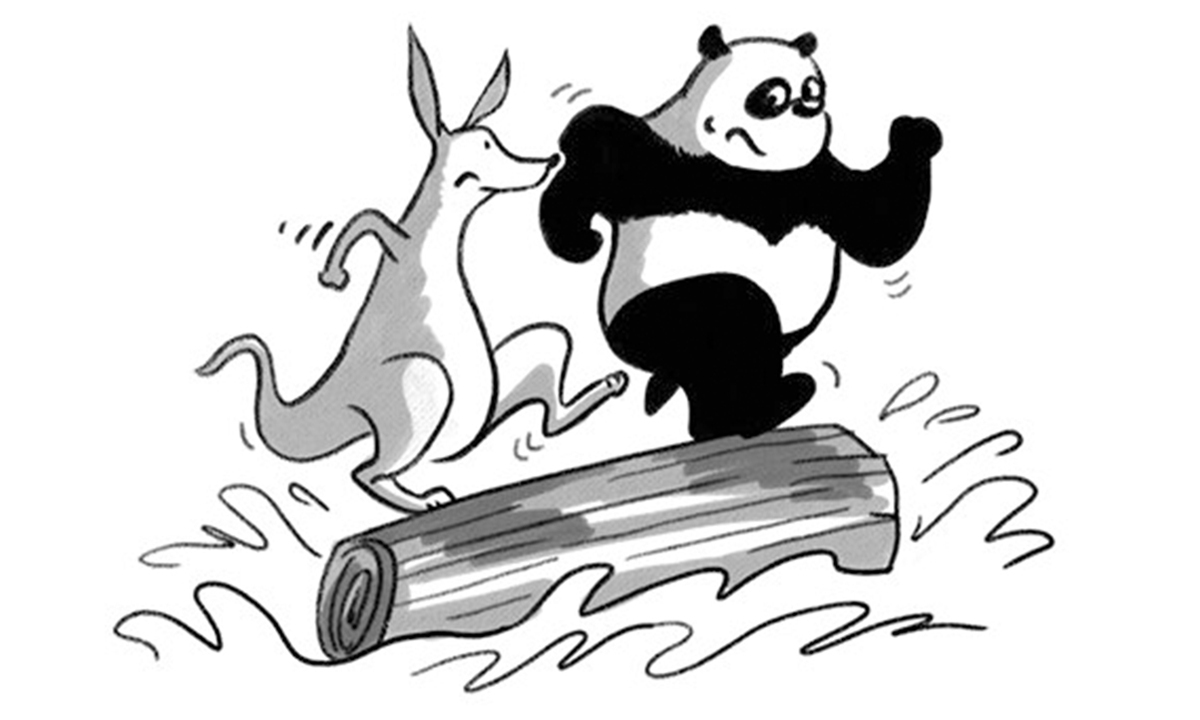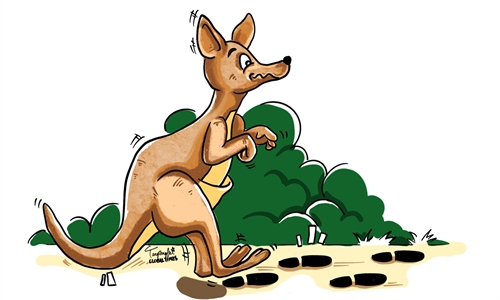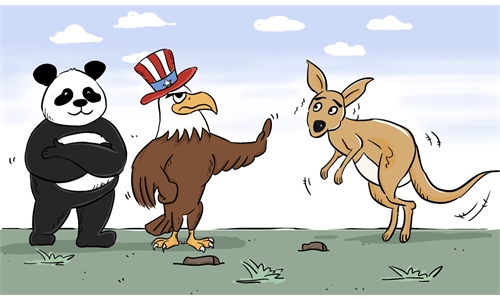
Illustration: Liu Rui/GT
Editor's Note:
China-Australia relations have become increasingly rocky and chilly in recent months. Why have the bilateral relations deteriorated so dramatically? Why is Australia tilting toward the US amid intensifying China-US competition? Is there any way for China and Australia to reset ties? Steve Howard (Howard), secretary general of the Sydney-based Global Foundation and a global strategist, shared his views with Global Times (GT) reporter Yu Jincui in a written interview.
GT: You said in our interview last year that the two countries had a strong economic relationship. As such, Australia should be China's best friend in the West. But the China-Australia relations dramatically soured in recent months. What has gone wrong between the two countries?
Howard: For those of us who have nurtured close relations between the two nations and the wider world over many decades, it is disturbing and disappointing to see the souring of the bilateral relationship. The mutual understanding that underpins the Australia-China relationship is clearly not strong enough and needs to be revisited, with urgency. It is our sincere hope that the governments of Australia and China will decide to address this and pursue a new spirit of cooperation - one that is robust enough to withstand serious disagreements from time to time. We have been encouraging both sides to rebuild trust and confidence in each other by working together on common interests internationally. "Win-win" should be the motto. At a time when the world faces its most serious economic crisis in a century, we need the strongest possible international cooperation. Australia and China should be at the forefront of this as a top priority.
GT: You said if China catches a cold, the world gets influenza and Australia gets pneumonia. Now more and more domestic voices are demanding Australia to reduce its dependence on the Chinese economy. What will the Australian economy become if it follows the US lead to decouple from China?
Howard: China's economic growth is pivotal to Australia's fortunes. We both have too many economic complementarities and too many convergent national interests, including but not limited to the economy. For example, I recall the joint efforts that our foundation made in 2008 to bring together the Australian and Chinese governments, and the then incoming Obama administration in the US, on climate change. At the same time, Australian business entrepreneurs will of course continue to seek out those global markets that are reliable trading partners and which provide certainty and good returns on investments.
GT: What role do you think the US has played in Australia's China policy? The US is urging countries to join an anti-China alliance. Chinese scholars believe Australia is the only country that has followed the US lead. Is such a trend by the Morrison government in line with the Australian interest?
Howard: Appearances can be deceptive. The US is influential but does not dictate Australia's foreign policy, including policy toward China. This was very evident in recent days with the conclusion of the annual ministerial talks between the US and Australian governments in Washington. I believe that the Australian government and opposition understand the difference between Australia's national values and its national interests. It is in Australia's long-term national interest to sustain effective relations and engagement with both China and the US, even if it seems like a difficult balance to achieve at times like these. Australia can also be helpful to China, where appropriate, on regional and global engagement and that's where my foundation has focused its attention in working with China in recent years, with the successful formation of the Asian Infrastructure Investment Bank being the best example.
GT: It seems Australia is tilting more toward the US. Why does Australia make such a policy option? How would you suggest Australia to handle its relationship with China and the US?
Howard: Taking a global perspective, China and the US have both changed in recent times and in ways that are not necessarily conducive to their respective international reputations. That's something that should give both great nations pause for thought. As a middle power, Australia should not only be a true friend to both the US and China but also, as in the past, be an effective soft bridge on issues that affect Australia's national interests. For example, the current COVID-19 pandemic requires effective global collaboration, not isolationism. If the world continues to turn inward, Australia has more to lose than most nations.
GT: What prospects do you see for China-Australia relations? Is there a way forward for the strained bilateral relations?
Howard: Australia is a noisy country, with many voices expressing differing views. To a large extent, if kept in balance, this is a sign of a healthy democracy. At the same time, those in positions of high influence need to be sensitive to their own remarks and actions. They should not give too much oxygen to those who would rather polarize. Effective foreign policy requires that some things are better unsaid, or discussed face to face, in a spirit of trust and friendship. In my experience, some of the most significant win-win outcomes involving Australia and China have come from quiet negotiations, rather than by using a megaphone, which may be counterproductive or, worse still, may lead to a downward spiral.


